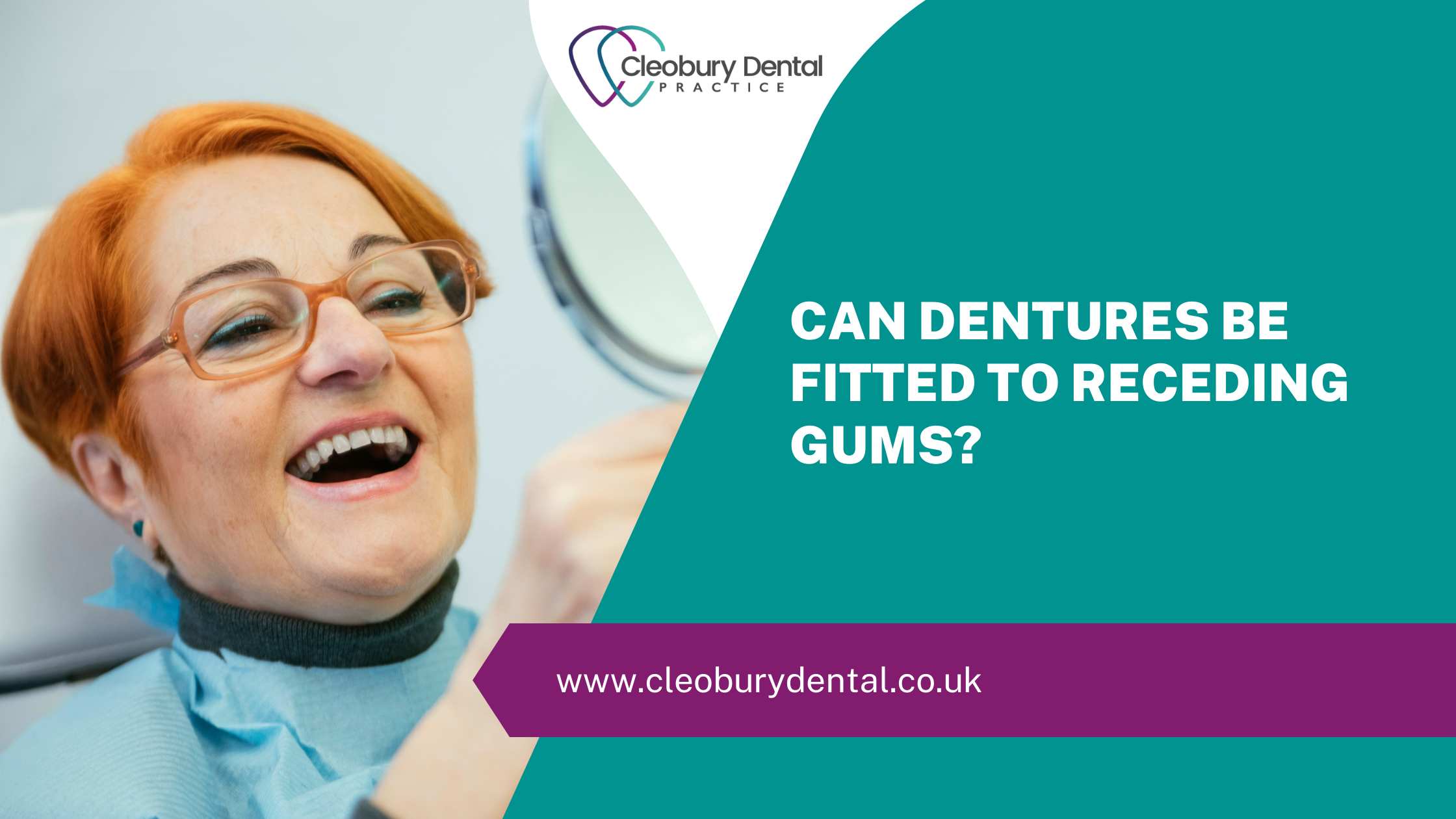
Can Dentures Be Fitted To Receding Gums?
Removable dentures are one of the most cost-effective and reliable options for replacing missing teeth. Whether you have lost a single or all teeth in your mouth, you can get them replaced with partial or complete dentures, respectively. If your dentist has recommended removable dentures for tooth replacement, you might have several questions about this option. For example, one of the most common questions prospective patients ask is whether they can get dentures if they have gum recession. If you are also looking for an answer to this question, this article is for you. So, continue reading to answer your questions about removable dentures.
Should I Be Worried About Receding Gums?
Gum recession refers to when the gums start to recede from their normal position. This situation can arise due to underlying gum inflammation or as a result of direct injury or trauma to the gum tissues. Regardless of the underlying cause, gum recession should not be taken lightly, as it indicates something wrong with your oral health. Besides, gum recession can also cause various complications, some would include:
- Teeth sensitivity
- Tooth decay
- Tooth loss
Therefore, even if you don’t observe any symptoms, you should seek immediate treatment if you have receding gums.
How Are Dentures Supposed To Fit?
There are two main types of removable dentures; partial and complete dentures. As the name indicates, partial dentures are used for replacing one or more teeth. These dentures derive their support from the underlying soft tissues and the jawbone. Partial dentures also possess metallic extensions called clasps that engage the supporting teeth and provide additional retention. On the other hand, complete dentures are removable appliances used when one has lost all their teeth in a jaw. Since there are no teeth remaining to provide support, full dentures entirely depend on the underlying jawbone and soft tissues for their fit and retention. In some cases, removable dentures are also supported by dental implants. These appliances are called implant-supported overdentures.
Can Major Dental Work Cause Gum Recession?
Gum recession can occur due to a variety of reasons. The most common reasons for receding gums include periodontal disease and gum injury. In some cases, certain medications can also cause gum recession or overgrowth. However, it is unlikely to have gum recession following major dental work. It can only occur if a novice dentist has used low-quality materials that may elicit an allergic reaction around the gums and cause them to recede from their position.
How To Get An Implant If Your Gums Have Sunken In?
One of the primary requirements for the success of implant therapy is the absence of underlying gum disease. This is because gum disease causes the bones to become weak. As a result, they cannot fully anchor the implants, leading to the failure of implant treatment. Therefore, if your dentist observes signs of gum recession or gum disease before implant placement, they will treat it first and wait till the gums have healed to place the implants.
How Long Should Gums Heal Before Dentures?
Gum recession can be a problem in older individuals. The best way to prevent gum recession is to ensure optimal oral hygiene through regular brushing and flossing, thereby reducing the risk of gum disease. Besides, regular checkup visits to the dentist also help slow down, even prevent gum disease. During a checkup appointment, if your dentist sees signs of gum disease during a checkup appointment, they will perform professional teeth cleaning to remove plaque and tartar deposits that harbour disease-causing bacteria.
What Is The Difference Between Dental Implants And Dentures?
According to the British Association of Oral Surgeons, an implant is a screw- or cylinder-shaped fixture inserted into the jawbone, serving as a replacement root. Once an implant has firmly embedded itself within the jawbone, a suitable prosthesis is attached over it to replace one or more missing teeth. On the other hand, a denture is a removable appliance that rests over the oral soft tissues and jawbone and also derives support from healthy natural teeth to replace missing teeth. So, while both dentures and implants are used for tooth replacement, they work differently.
What Can Gum Pain Around Dental Bridge Suggest?
Pain sound a dental bridge may suggest that either the supporting natural teeth or the underlying jawbone is inflamed. If you find yourself in such a situation, you should not take it lightly. Instead, you should visit your dentist immediately. They will perform x-ray imaging of the affected teeth and jawbone to identify the underlying cause.
How Severe Does Gum Recession Have To Be To Cause Tooth Loss?
In its early stages, gum disease simply causes swelling, tenderness, and bleeding from the gums. However, the infection travels into the jawbone with time, causing widespread destruction. When this happens, there is insufficient healthy bone tissue available to support the teeth in their sockets. As a result, the teeth start to become mobile. If the problem is not fixed at this point, the teeth become so mobile that they simply fall off. Hence, tooth loss is a common complication associated with severe gum disease.
Gum recession, if left unchecked, can cause severe oral and physical health-related complications. However, the good news is that gum disease is preventable. All you need is to ensure optimal oral hygiene and visit your dentist regularly. If you live in Kidderminsters and you’re looking for a reliable dental practice, you should consider Cleobury Dental Practice. We are excited to offer free video consultations to prospective patients. So, book an appointment today and let us take care of your smile and oral health. Book
Kunal has since returned to Cleobury Dental Practice and is committed to advancing his skills and knowledge by studying a postgraduate diploma in Restorative Dentistry at the University of Birmingham. As Principal Dentist, he has the honour of leading his dedicated team and continuing to develop Cleobury Dental Practice as a proud provider of high-quality dental care.
- Can Dentures Be Fitted To Receding Gums? - February 26, 2022
- Are Clear Ceramic Braces The Better Option For You? - January 3, 2022
- Dental Veneers Before And After – What You Need To Know - November 2, 2021



